Vergil
Publius Vergilius Maro (October 70 BC – September 19 BC)
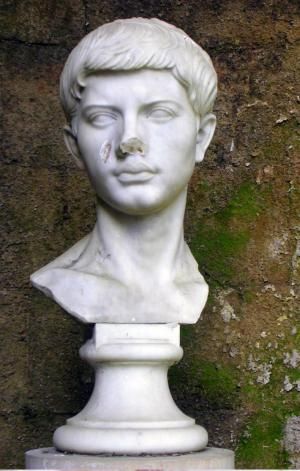
Bust of Vergil, the Latin Poet
Lesson Series
Click on a title below to get started.
1. The Eclogues
2. The Georgics
3. The Aeneid
The Eclogues
Vergil’s Eclogues are 10 poems, very short in length, of pastoral interest. Based on the Sicilian Greek poet Theocritus, these tell of the songs and loves of rustic shepherds, but occasionally interweave important historical, philosophical, and possibly theological themes (especially Eclogue 4).
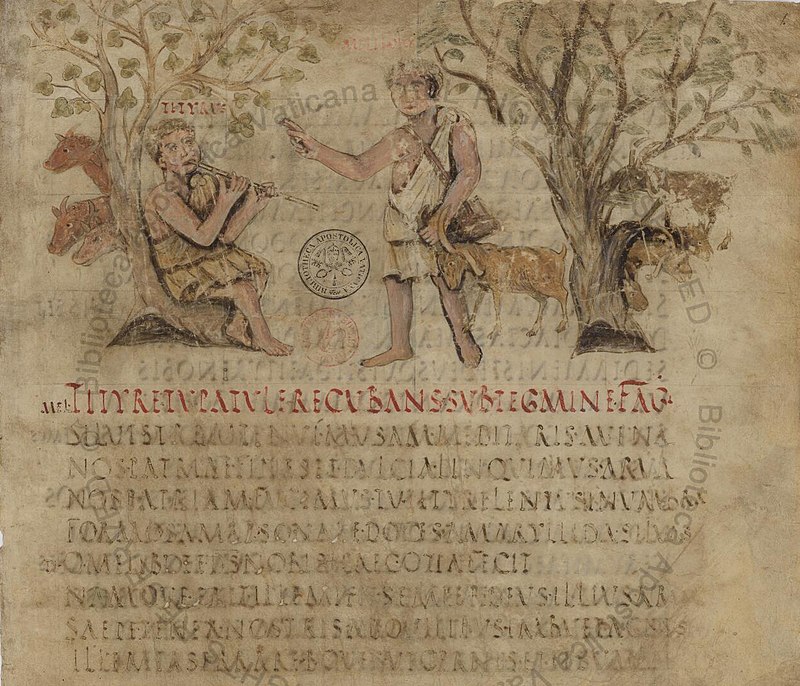
Page Vergil’s Eclogues in the 5th-century Vergilius Romanus
The Georgics
Vergil’s Georgics are four poems of agricultural description. The poet began composing these around 38 BC and released at the collection in 29. Each poem, written in the dactylic hexameter (like all of Vergil’s surviving works) describes a different aspect of country life.
Book 1 is the care of the fields; Book 2, of animals; Book 3, of orchards; Book 4 deals with apiary, as well as famously concluding the myth of Orpheus.
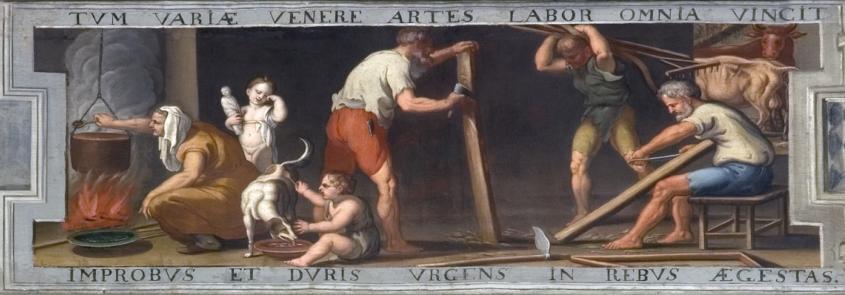
Late 17th-century illustration of a passage from the Georgics by Jerzy Siemiginowski-Eleuter
The Aeneid
Vergil’s Aeneid has been called “the best poem by the best poet”. The 12 books of epic heroism were written, we are told, to rival Homer and praise Augustus all the way back to his ancestors.
Along the way Vergil dazzles us with his mythological learning, depth of feeling and emotion, and rhetorical fireworks. It is a profound work of unmeasured influence.
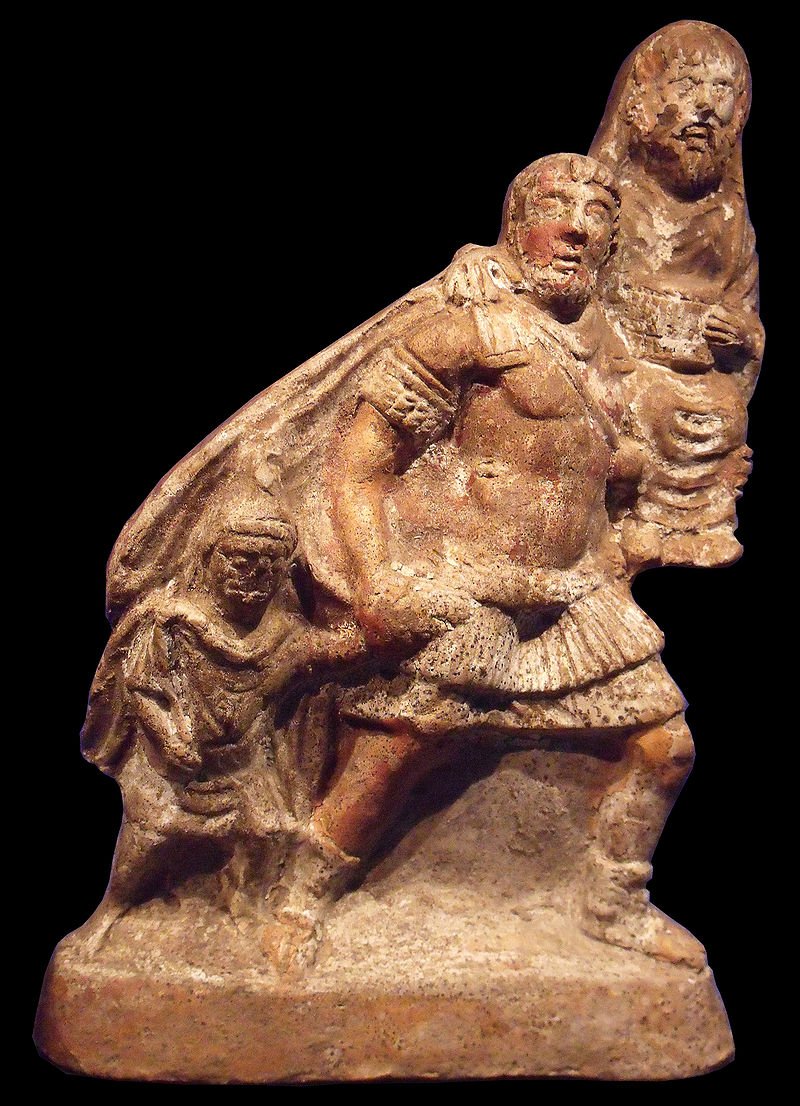
A 1st-century terracotta expressing the pietas of Aeneas,
Want more quizzes? Please consider supporting us as a Patreon subscriber.
Please consider supporting LatinPerDiem with a monthly Patreon subscription! We have several different tiers of subscription levels to suit every learner – each with fantastic benefits to our Patrons.
Interested in Greek?
The Moss Method for Greek
Dr. David C. Noe also teaches Greek! Through The Moss Method, Dr. Noe provides high-quality, comprehensive Greek instruction readily available in an inexpensive, expertly-presented, and self-paced format.
LatinPerDiem (LPD) is committed to bring high quality, accessible Latin instruction to scholars of all ages around the world.
































